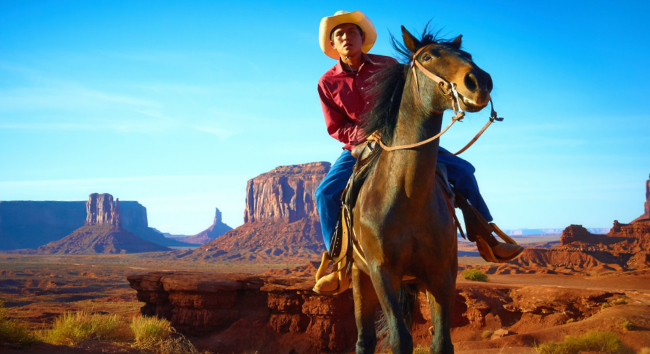What-if: the Foundation of Fiction
Fri Mar 04 2016
At its core, every story has something essential which is different from the actual world we live in. A what if that captures the story’s essential core. I talked about this a little last week, and wanted to flesh that idea out this week.
What-ifs can be anything, but are always something you could not take away from the story without altering its essential qualities.
That difference might be something simple, like "What if a college dean fell in love with one of the guys on the school’s baseball team?" If you’re Chad Harbach, that what-if leads you to The Art of Fielding and a New York Times "best book of the year" stamp on your book’s cover.
It might be something more complex, like "What if humans discovered a planet with dragons?" If you’re Anne McCaffrey, you end up with the Dragonriders of Pern series and a Hugo Award on your mantle.
The writer’s job is to seek out the interesting what-ifs in the world around them. What-ifs are everywhere. That’s what the illustrations in this article are all about. Stories come from exploring what would happen if the what-if were true.
A good what-if isn’t enough
Every story may have a what-if at its core, but the what-if alone is rarely enough to reveal the story to you. You have to work with it a bit.
Fortunately, the what-if tends to imply many other things as well, and it is in those you’ll find your story. Some of these implications are not up for debate; they are logically necessary given the what-if. For others, you have leeway in how you satisfy those implications.
Let’s imagine the process of thinking through the implications of Pern’s what-if. "A planet with dragons" implies humans as a space-faring species, which implies the far future. That’s not up for debate.
People and dragons on the same planet demands some kind of relationship between the two. But there, McCaffrey had plenty of freedom in deciding what that relationship should be. I’d be surprised if she didn’t consider a people-vs-dragons scenario, since that seems a rather obvious line to pursue. In the end she went with a cooperative relationship instead, probably because that seems a richer vein to tap than just stories about people and dragons fighting.
But with dragons as partners with people rather than opponents, what would serve the role of antagonist/nemesis/challenge? Whatever she chose, logic demands it should be something for which dragons are a useful asset, and moreover, something the dragons would have a natural ability to counter. Endless possibilities there, but McCaffrey came up with the deadly "thread" that periodically falls through the skies, which the dragons can burn up with their fire breath.
To make the dragons interesting, though, they should be more than just a tool in the humans’ arsenal. They should be co-equal beings with their own motives, feelings, and so forth. Which means finding a way within the world-building for the dragon viewpoint to be exposed. She could have gone with talking dragons, but instead went with genetic modifications to enable the humans and dragons to communicate telepathically.
On and on you go, exploring the what-if until you arrive at a clear picture of the story’s world in your mind.
Not every what-if will lead somewhere interesting. But a good what-if should prompt you to consider interesting questions with answers that aren’t necessarily obvious, and should offer you a nice balance of strong logical demands with flexibility in how you explore them.
Invite your muse
In last week’s post, I suggested that asking what-if was a way of overcoming writer’s block, because it’s how you generate story ideas. When the well is dry and your words won’t flow, your job is to go through life watching the world for interesting things--or even mundane things--and asking "what if" about them.
Maybe Chad Harbach was at a ballgame, watching the players’ wives and girlfriends all cheering in the seats above the dugout, and he thought to wonder, "What if one of those women was actually a middle-aged man?"
Maybe Anne McCaffrey saw some old cowboy movie, and asked herself "hey, what if those guys weren’t riding horses, but dragons?" I can’t say that’s what actually happened, but one can easily imagine Pern starting that way.
When you ask what-if, you invite your muse to tea. The two of you can then sit down to think through the implications of that what-if. If the what-if is a fertile one, somewhere in those implications your muse will perk up and exclaim, "Look! Right there! That’s a story!"





 @sonjablack.bsky.social
@sonjablack.bsky.social